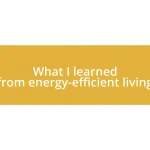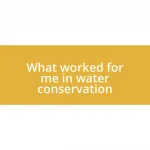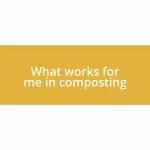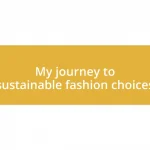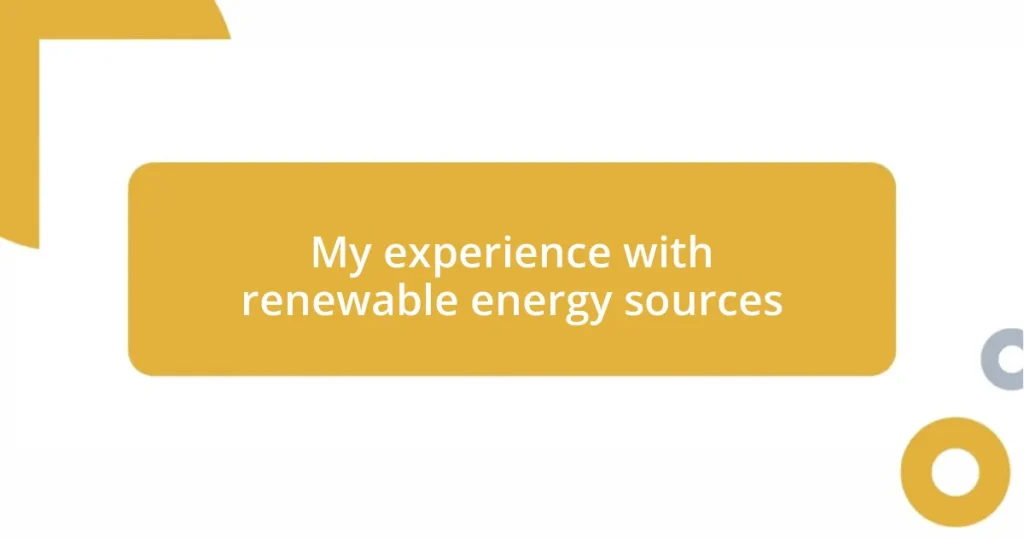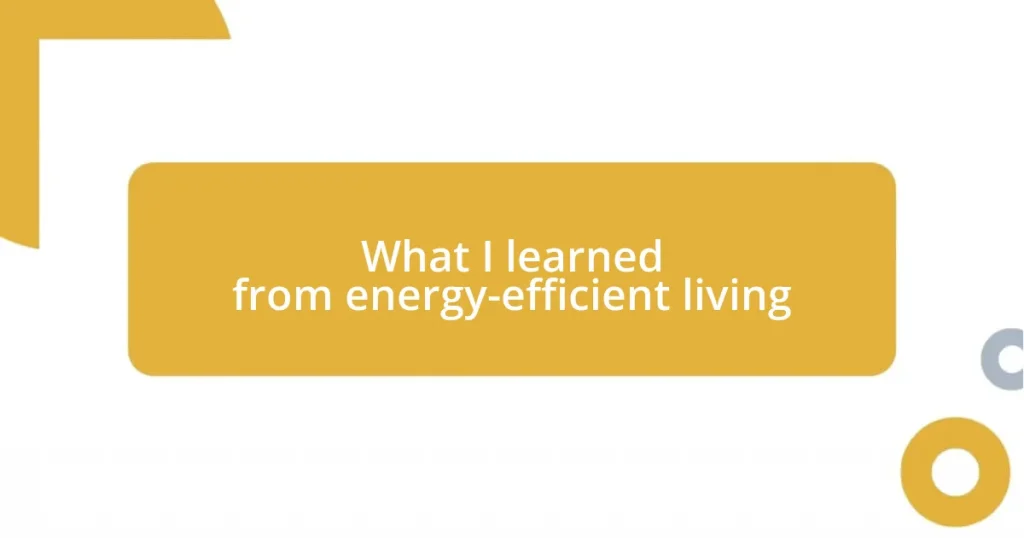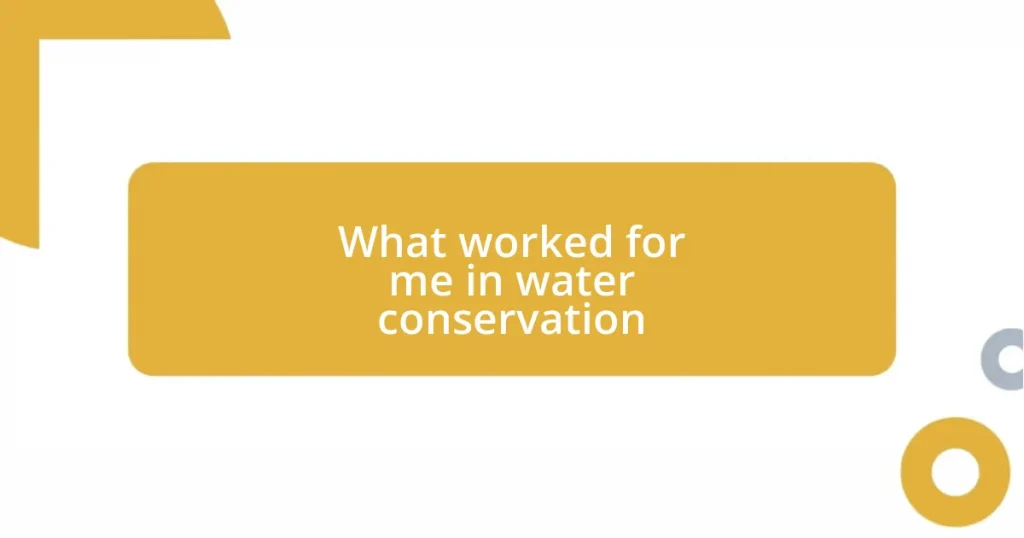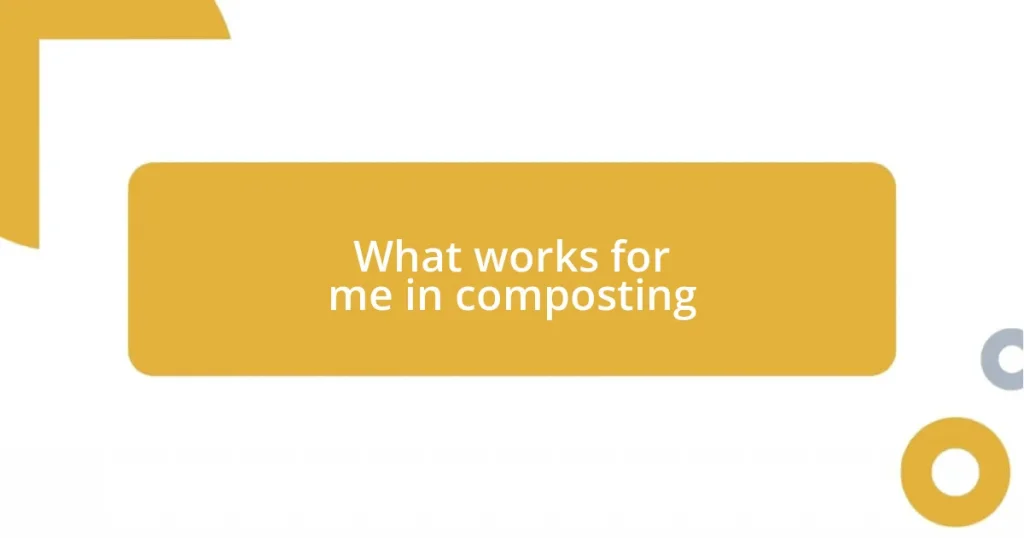Key takeaways:
- Personal experiences with renewable energy lead to a deeper connection with sustainable practices, exemplified by solar panel installation and community engagement.
- Exposure to various renewable energy sources, like geothermal, wind, and biomass, highlights their potential for clean energy and sustainable solutions.
- The benefits of renewable energy, such as reduced greenhouse gas emissions, energy independence, and job creation, promote environmental preservation and community empowerment.
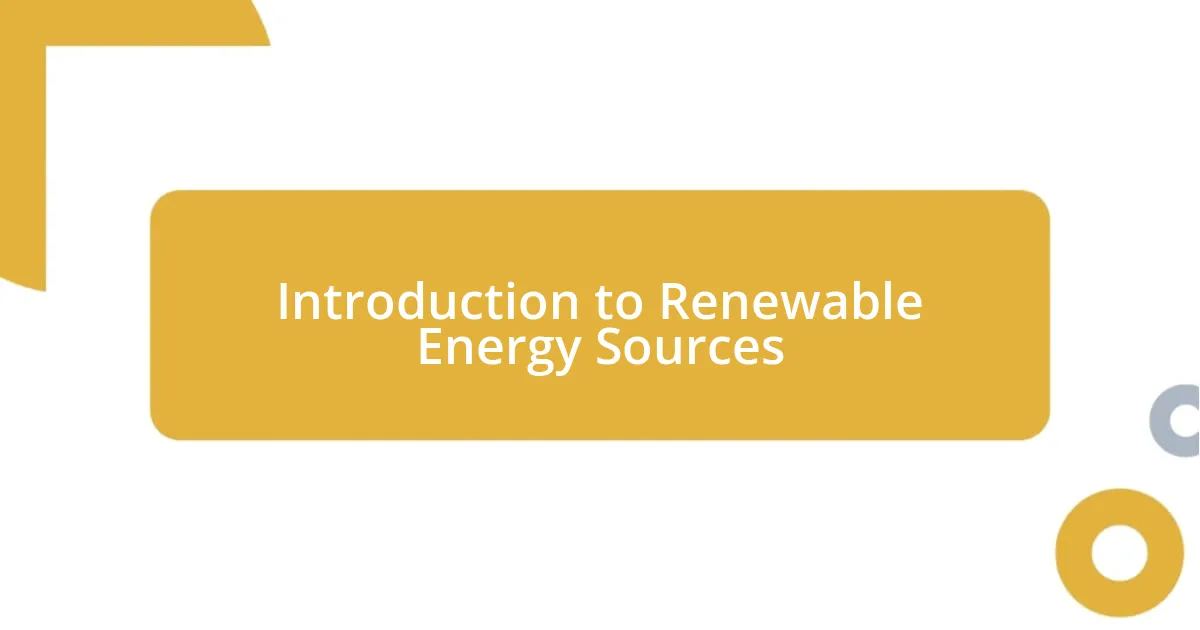
Introduction to Renewable Energy Sources
Renewable energy sources are like the quiet heroes of our time, offering a sustainable alternative to the fossil fuels that have powered our world for so long. I remember the first time I saw a wind turbine up close; it towered above me, transforming the powerful gusts of wind into clean energy. That moment made me think: if nature can provide us with such incredible resources, why aren’t we harnessing them more widely?
Let’s consider solar energy. I installed solar panels on my roof a couple of years ago, and honestly, the feeling of generating my own electricity is exhilarating. The thought that sunlight, a free and abundant resource, is now powering my home is not just practical; it connects me to the environment in a profound way. Isn’t it fascinating how these sources can shift our relationship with energy from dependence to empowerment?
Then there’s geothermal energy, which I often find overlooked but is hugely significant. During a recent trip to Iceland, I was struck by how they utilize the Earth’s natural heat for everything from heating homes to fueling greenhouses. It made me realize: if other countries can tap into this potential, why can’t we? There’s so much we can learn and adapt in our pursuit of cleaner energy solutions.
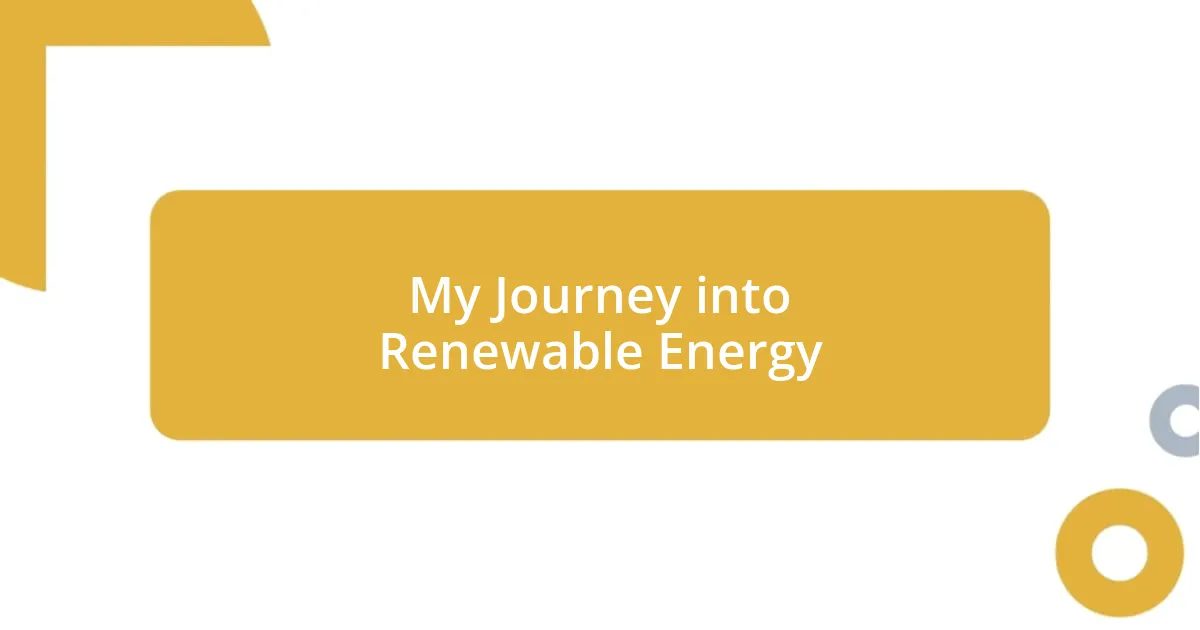
My Journey into Renewable Energy
My journey into renewable energy really began at a local community event focused on sustainability. I attended a workshop where I met enthusiastic individuals committed to changing our energy habits. Their passion was contagious and ignited something inside me. It was a space filled with curiosity, and I found myself asking questions I never considered before. The realization that small actions could collectively lead to significant change motivated me to become more engaged.
- The excitement of learning about different energy sources.
- Connecting with like-minded individuals sparked my interest.
- Realizing that my actions, however small, could make a difference.
A few months later, I decided to take a leap and volunteer with a local organization promoting renewable energy awareness. At my first event, I was tasked with helping set up displays about solar and wind energy. Watching people stop, read, and ask questions made me realize how transformative education is. I felt an overwhelming sense of pride in being part of a movement that encourages others to think differently about the energy they use. There’s a powerful sense of community in working towards a common goal, and it was during these moments that I truly connected with my own passion for sustainability.
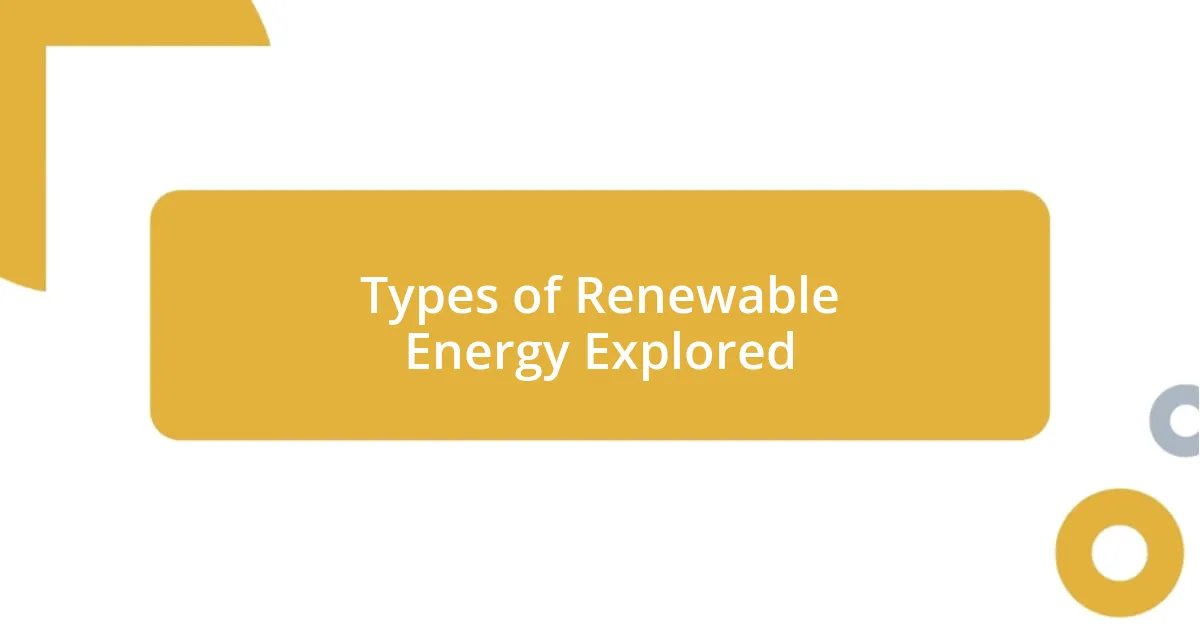
Types of Renewable Energy Explored
Exploring different types of renewable energy has been a genuine eye-opener for me. For instance, during a hiking trip to the Pacific Northwest, I stumbled across a biomass facility. The smell of wood chips in the air resonated with my childhood camping days, yet it was inspiring to know that those same materials could be converted into clean energy. Biomass energy harnesses organic materials, offering a unique way to recycle waste while providing power. It’s a fascinating blend of sustainability and nostalgia for me.
Wind energy is another type I can’t help but talk about. I vividly remember a day at the beach when the wind was particularly strong. It hit me as I stood there, feeling the gusts against my skin, how we could be tapping into such an abundant and free resource. Wind turbines, stretching across the horizon, are not just structures; they symbolize potential. Every turn of their blades creates electricity that can power homes and contribute to a cleaner future.
Now let’s not neglect hydroelectric energy, which is often one of my favorites due to its powerful connection to nature. My first experience at a hydroelectric dam was awe-inspiring. The sound of rushing water, the sheer force displayed—as if nature was doing the heavy lifting for us! Hydro plants convert flowing water into electricity, representing an efficient, established technology that harnesses one of Earth’s most fundamental resources.
| Type of Energy | Description |
|---|---|
| Solar Energy | Harnesses sunlight using panels to generate electricity. |
| Wind Energy | Uses turbines to convert wind movement into electrical energy. |
| Geothermal Energy | Utilizes heat from the Earth’s core for heating or electricity. |
| Biomass Energy | Converts organic materials into energy sources, reducing waste. |
| Hydroelectric Energy | Generates power by using flowing or falling water. |
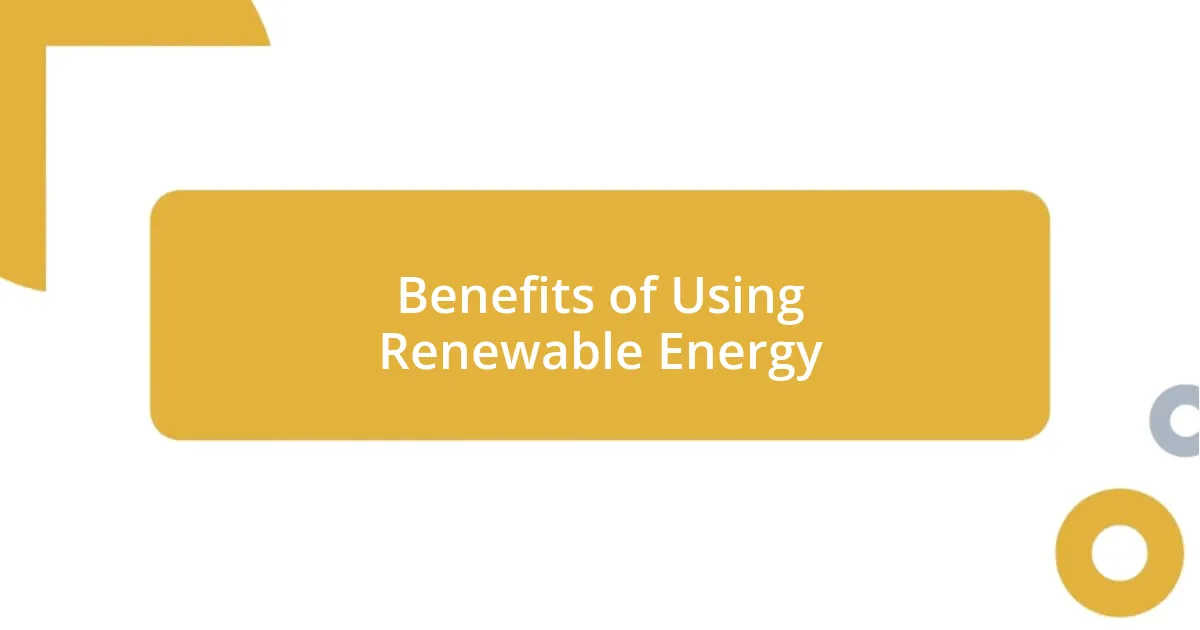
Benefits of Using Renewable Energy
Using renewable energy comes with an array of benefits that truly resonate with me on a personal level. One of the most significant advantages I discovered is the reduction in greenhouse gas emissions. When I first learned that solar panels could supply power without releasing harmful pollutants, it struck me. Imagine a world where cleaner air isn’t a luxury but a reality. It’s empowering to think that by transitioning to renewable resources, we’re actively contributing to the preservation of our planet for future generations.
Another benefit that really makes me excited is the potential for energy independence. I once participated in a community initiative that set up solar ventures on local homes. Witnessing homeowners suddenly free from relying solely on traditional energy suppliers was remarkable. They felt a surge of control over their energy costs and sources. Have you ever considered how liberating it is to take charge of your own energy? This shift not only paves the way for economic opportunities but fosters a sense of resilience and community strength.
Additionally, the job creation aspect of renewable energy is something I’ve come to appreciate deeply. After attending a few seminars, I learned that these sectors are rapidly growing, opening up diverse job opportunities. I remember a former colleague sharing his excitement about his transition from a corporate job to working in a solar panel installation company. He felt like he was part of something bigger—a movement towards sustainability. The idea that pursuing renewable energy can provide employment while saving the environment feels like a win-win to me. Don’t you think that’s a powerful combination?
